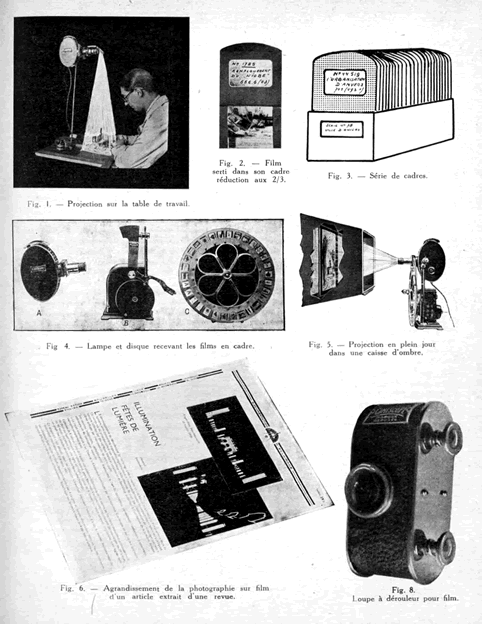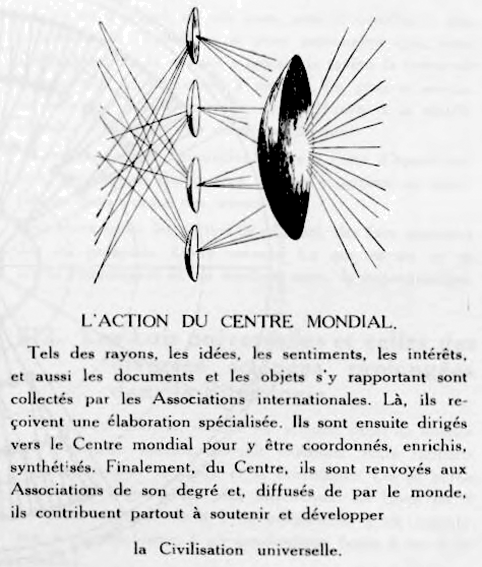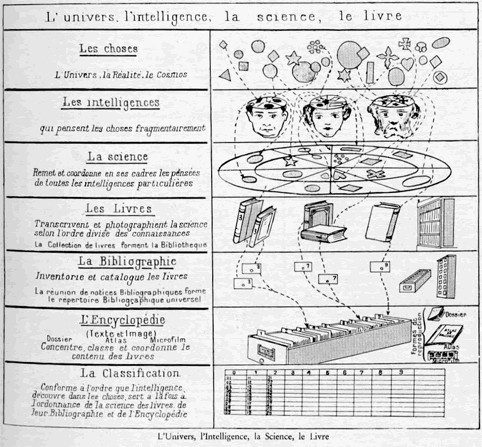Paul Otlet: Traité de documentation. Le livre sur le livre. Théorie et pratique (1934) [French]
Filed under book | Tags: · bibliography, document, information, knowledge, knowledge production, library
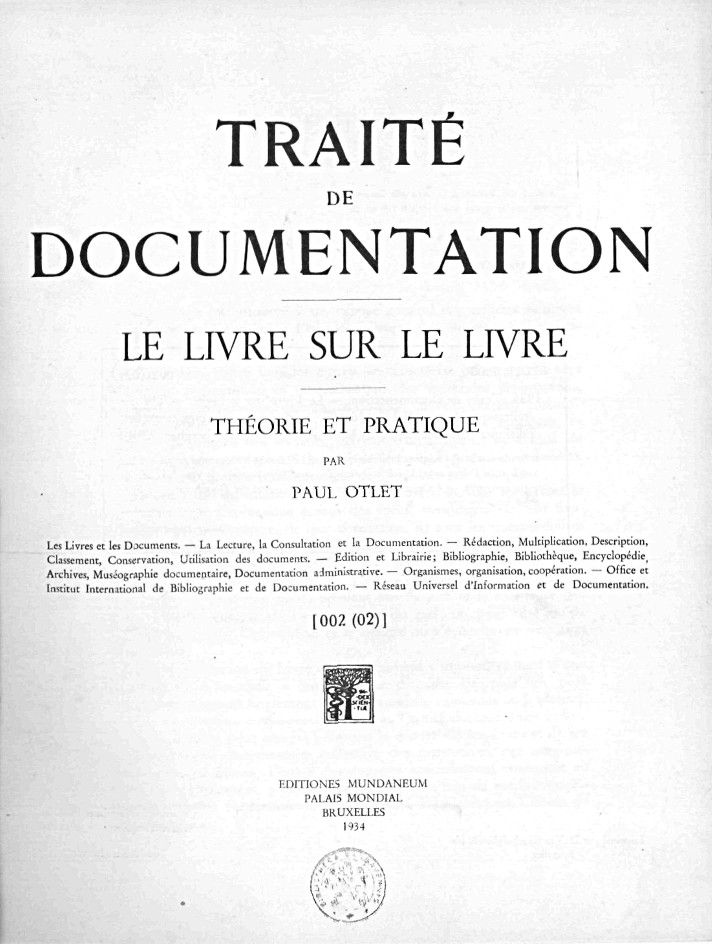
“In the 1920s and 1930s, Paul Otlet wrote about radio and television as other forms of conveying information, writing in his 1934 masterpiece Traité de documentation that ‘one after another, marvellous inventions have immensely extended the possibilities of documentation.’ He also predicted that media that would convey feel, taste and smell would also eventually be invented, and that an ideal information-conveyance system should be able to handle all of what he called ‘sense-perception documents’. The book has not been translated into English yet.” (Wikipedia)
Publisher Editiones Mundaneum, Brussels, 1934
431 pages
PDF (196M; scanned by the Ghent University)
Internet Archive (multiple formats)
Wikisource
Paul Otlet: International Organisation and Dissemination of Knowledge: Selected Essays (1990)
Filed under book | Tags: · bibliography, book, knowledge, knowledge production, library
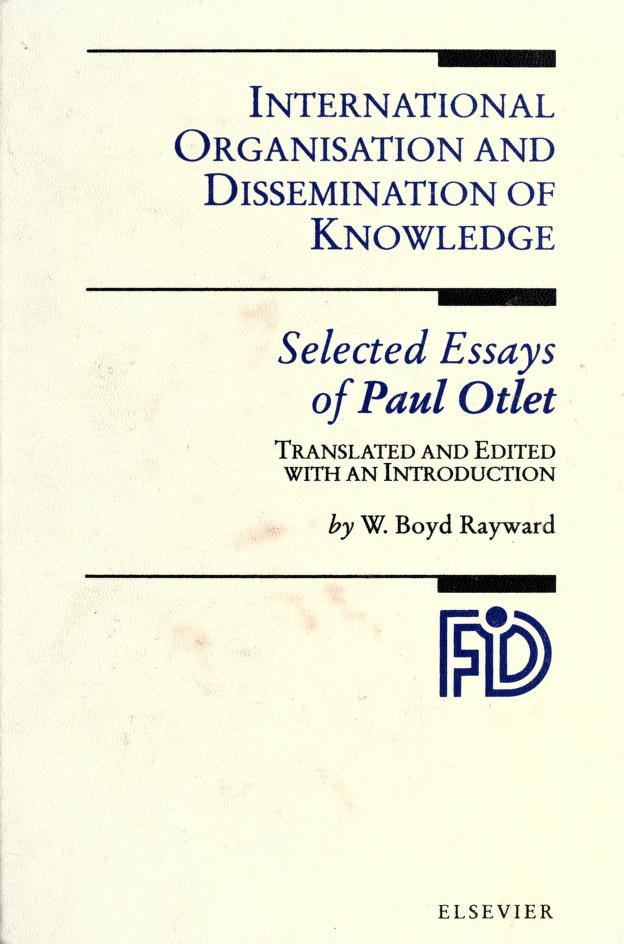
“These translations of a selection of Paul Otlet’s writings have been a long time in preparation. Now put down, now taken up again over a period of ten years or so in Chicago, London and Sydney, they are dispatched at last to Amsterdam with relief. They follow an earlier biographical and institutional study of Otlet and the International Institute of Bibliography (now FID, the International Federation for Information and Documentation). The publication of that work left me with a troubled sense of more that needed to be done, of an obligation incurred but not yet discharged. It has always seemed to me that, though not entirely neglected, Otlet’s contributions to our understanding of bibliography, documentation and what is now called information storage and retrieval, sometimes information science, and the technical and institutional arrangements needed to maximise their social utility, have not had the attention in the English-speaking world that is their due. It is my hope that the availability of this selection of papers in English, both in themselves and because of the attention that the act of publication can engender, will encourage a renewal of interest in Otlet’s thinking about and work for the international organisation and dissemination of knowledge.”
Translated and edited, With an introduction by W. Boyd Rayward
Publisher Elsevier, 1990
FID Publication series, 684
ISBN 0444886788, 9780444886781
256 pages
PDF, PDF (updated on 2019-6-6)
multiple formats (Internet Archive)
Peter Drahos, John Braithwaite: Information Feudalism: Who Owns the Knowledge Economy? (2002)
Filed under book | Tags: · activism, business, copyright, economics, intellectual property, knowledge economy, law, piracy, politics, TRIPS, wto

New intellectual property regimes are entrenching new inequalities. Access to information is fundamental to the exercise of human rights and marketplace competition, but patents are being used to lock up vital educational, software, genetic and other information, creating a global property order dominated by a multinational elite. How did intellectual property rules become part of the World Trade Organization’s free trade agreements? How have these rules changed the knowledge game for international business? What are the consequences for the ownership of biotechnology and digital technology, and for all those who have to pay for what was once shared information? Based on extensive interviews with key players, this book tells the story of these profound transformations in information ownership. The authors argue that in the globalized information society, the rich have found new ways to rob the poor, and shows how intellectual property rights can be more democratically defined.
Publisher Earthscan, 2002
ISBN 1853839175, 9781853839177
253 pages
PDF (updated on 2012-6-13)
Comment (0)

